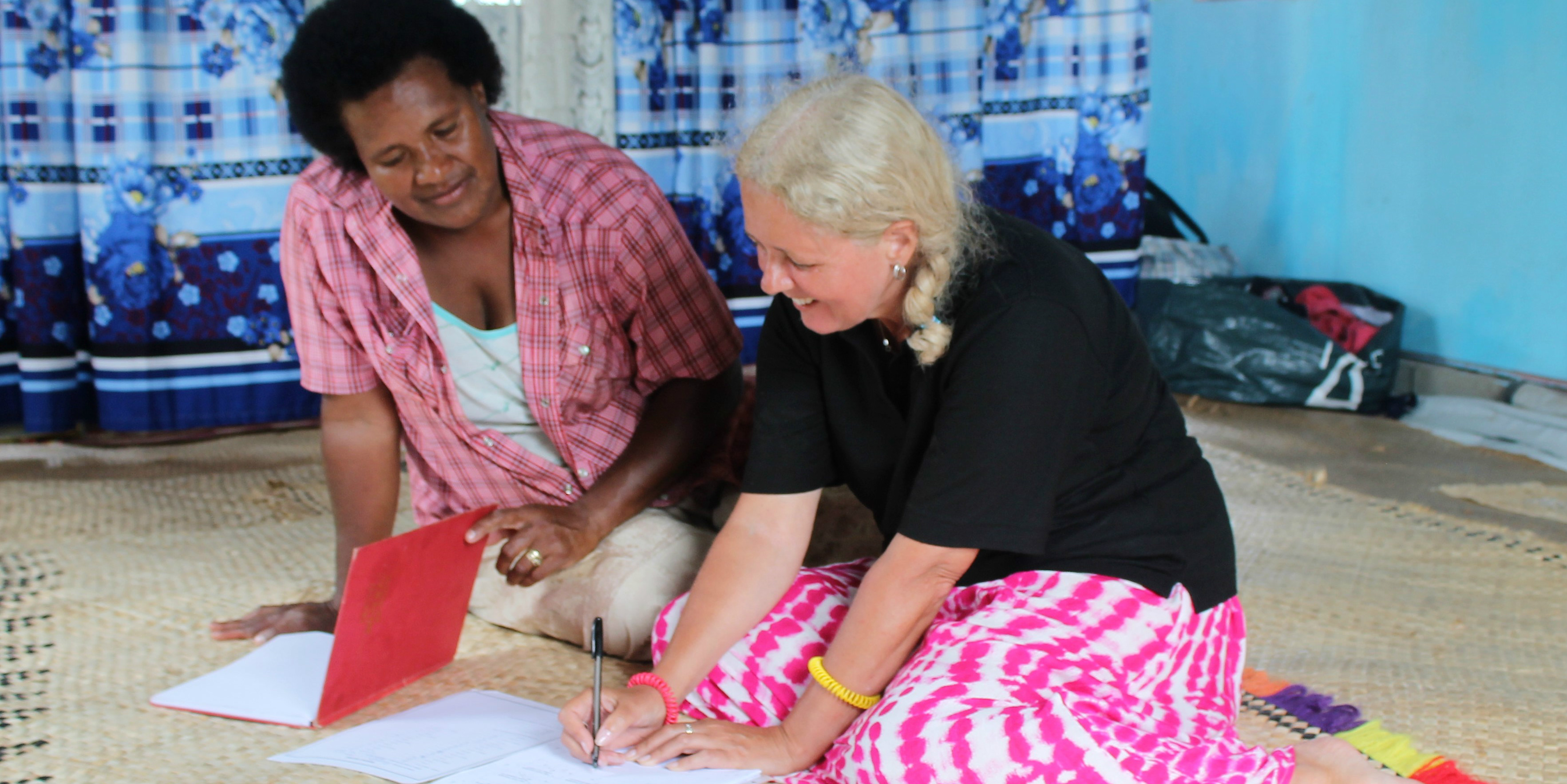Discover the importance of gender equality in development. Learn how to support women's empowerment through volunteering with GVI. Read more now.
Petrina Darrah
Posted: May 13, 2023

Lindsey Chynoweth
Posted: January 28, 2019
Are you considering taking the plunge to teach English overseas? Perhaps you are a student on a gap year, a recent graduate, or you’re looking to have a career break.
Teaching English can be a great way to gain hands-on experience and increase your employability.
It is estimated that one in five people in the world speaks English or around 1.5 billion people.
English remains the most studied language worldwide. It’s widely considered the language of the internet, media, and many other industries, from science to tourism.
Here are six reasons why you should teach English abroad, with some advice from someone who moved from England to Singapore to do just that.

In the classroom, gaining cultural insight is inevitable. In almost every task the English teacher sets, students are able to draw examples from their own lives and relate it to the topic being studied.
For example, students who are practising past tense might share their experience of celebrating at a recent festival that you hadn’t heard of before.
You’ll not only have a chance to eat the local food, but you can discover more about the cuisine too. Learners who are writing instructions might share a family recipe that you can try to cook!
Your students are also likely to be curious about the country you are from. Stamps, postcards, flags, maps, coins, and notes make for an entertaining show-and-tell.
As a Brit, I brought sterling notes along with me. When I asked my young learners who the lady on the back was (i.e. Queen Elizabeth II), they replied, “Grandma.”

One of the best perks of teaching English abroad is having the opportunity to travel. Whether it’s weekend trips away, national holidays, or course breaks, you can take some time to see the sights.
Outside of the classroom, you can get to know the community where you teach. Ask your colleagues, students, or host family, how they pass the time. You might get to visit places that are not featured in the tourist guides.
You’re bound to meet like-minded people when you’re teaching English. When your schedule allows, you’re free to go shopping or have adventures with your new friends.
While living abroad, I’ve climbed volcanoes in Indonesia and visited the orangutan rehabilitation sanctuary in Borneo. I’ve even scuba dived in the dragon-infested Komodo National Park.
GVI has teaching programs all over the world for you to choose from.

Sticking to English in the classroom is a good idea as it makes the teaching experience as immersive as possible for the students. But there may be opportunities for you to learn the local lingo away from school.
In a different country, you should always learn a few phrases of functional language to get by. If you’re staying with a family for a homestay, be a gracious guest by memorizing some polite phrases such as, “That meal was delicious!” and “Thank you for having me.”
Some teaching opportunities, such as the GVI Costa Rica teaching program, include Spanish lessons as an option. It’s much easier to learn a new language in a place where you’re exposed to it 24/7. The language will almost begin to seep in without you knowing it!
For example, in Southeast Asia, it’s common to hear people using ‘lah’ at the end of each sentence. I learnt that the meaning of ‘lah’ depends on the tone used, but locals will be more than happy to explain the nuances if you’re curious and willing to learn.

Regardless of your age or career direction, practical experience can help you find work in the future.
Teaching English helps you develop many transferable skills, including time management, organization, planning, creativity, teamwork, giving/receiving feedback, and problem-solving. It also helps with interpersonal relationships and self-evaluation.
At first, the thought of a classroom filled with students may seem terrifying. Yet the more classes you teach, the more relaxed you’ll be. With time, you can adjust to the individual needs of your learners.
You quickly learn that you are not the centre of the class – instead, see your role as a facilitator of learning.
Forget the performative role of the typical Hollywood teacher who drones on before cracking a killer punchline. You should allow the students to learn through guided discovery as much as possible, and be there to encourage them and give feedback.
You’ll learn how to motivate your students. Find out their favourite movie characters, sports, and musicians. You can be creative to plan lessons that your students will enjoy.

Many communities see English language proficiency as a profitable skill to have, helping them to work with international organisations, provide services, or work in the tourism industry itself.
With 20% of the world learning English, there’s a huge demand for English teachers. You don’t have to be a native speaker to teach English, but you do need to be proficient and ready to learn how to teach.
When you teach English abroad, you might be helping a student prepare for an exam, help someone get a job, or help them get promoted in a current role.
Depending on the school curriculum, and being mindful of cultural practices that may differ from your own, there may be flexibility for you to highlight important topics.
For example, my school wanted to promote recycling. In Singapore, plastic consumption is a big problem, so we wanted to address responsible ways of reducing our plastic use.
The students designed posters about what we can do to cut down on plastic, and we had a lively debate about using reusable products instead.
The more you connect with relevant issues, the more impact the lesson will have.

If you teach English abroad, you will improve your chances of getting employed in the future, especially if your prospective employer is looking for practical experience.
Being an English teacher in another country is an impressive boost to your CV. It shows you are proactive and can communicate effectively.
As an English teacher, you’ll have the opportunity to observe classes in action and be supervised as you teach. At the end of your placement, you’ll receive a certificate of completion and a reference letter to help you apply for future jobs.
Even if you’re not looking to become a professional educator, having hands-on experience is beneficial. It shows you have initiative and can work independently.
If you’re anything like me, though, you’ll want to continue teaching, as it’s the most rewarding job around.
If you would like to begin your teaching journey, GVI has volunteer programs and teaching internships around the world. You will be trained and supported throughout your journey, and gain valuable experience along the way.
If you would like more information about GVI’s teaching internships, read ‘Seven frequently asked questions about teaching internships abroad’.
Discover the importance of gender equality in development. Learn how to support women's empowerment through volunteering with GVI. Read more now.
Petrina Darrah
Posted: May 13, 2023